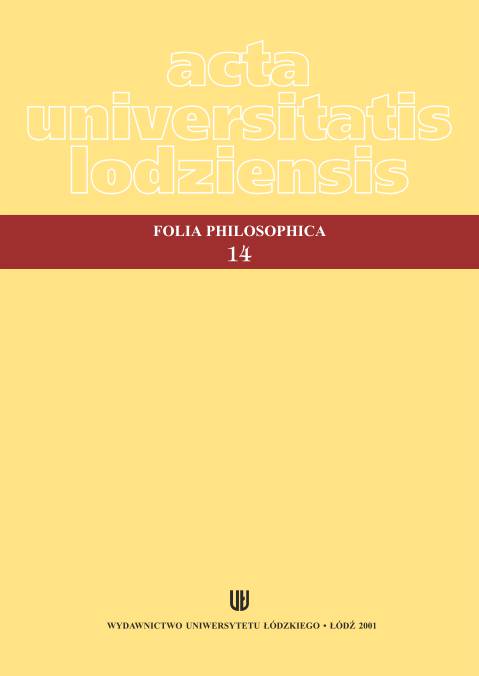Tragedia według Schopenhauera
DOI:
https://doi.org/10.18778/0208-6107.14.08Abstrakt
The purpose of that text is to show the place of the reflection on tragedy within the Schopenhauerian system. The conception of tragedy is based on two key terms of Schopenhauerian philosophy: will and objectification. Explication of these terms and their role in the definition of tragedy leads to the correct understanding of tragedy as the manifestation of the inner contradiction of the will. The main problem of tragedy is freedom. According to Schopenhauer, since Greek thinkers didn't know the concept of transcendental freedom, they were unable to create perfect tragedy, which could emerge in German romanticism after Kant.Pobrania
Opublikowane
2001-01-01
Jak cytować
Przybysławski, A. (2001). Tragedia według Schopenhauera. Acta Universitatis Lodziensis. Folia Philosophica. Ethica-Aesthetica-Practica, (14), 169–175. https://doi.org/10.18778/0208-6107.14.08
Numer
Dział
Articles
Licencja

Praca jest udostępniana na licencji Creative Commons Attribution-NonCommercial-NoDerivatives 3.0 Unported License.












